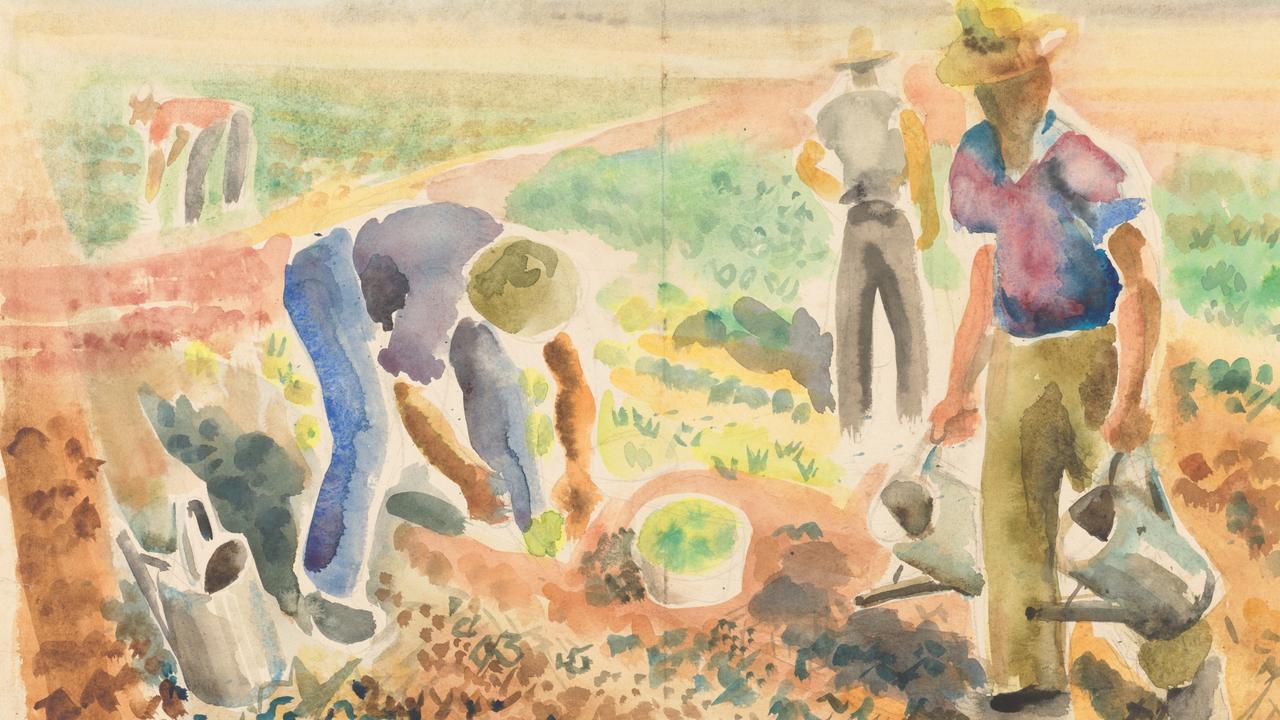Movie reviews: Rules Don’t Apply; Things to Come (L’avenir); Bad Girl
In his 80th year Warren Beatty is back with Rules Don’t Apply, about legendary inventor and filmmaker Howard Hughes.
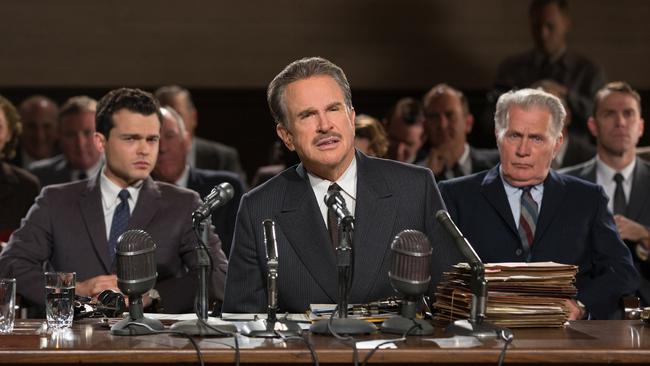
Warren Beatty became a superstar when he romanced Natalie Wood in his first acting role in a feature film, Splendor in the Grass (1961). Six years later, as producer and lead actor of the trailblazing Bonnie and Clyde, he became the hottest name in Hollywood and even persuaded Paramount to allow him to direct and star in Reds (1981), a lengthy epic about John Reed, the American journalist caught up in the Russian Revolution. But Beatty’s star fell quickly; by the time he directed Bulworth (1998), a scathing political satire, he was no longer a box-office draw and his last starring role, in Town and Country (2001), flopped badly. We haven’t seen him since then but now, 16 years later, in his 80th year, he’s back as actor and director with Rules Don’t Apply, a long-planned film about legendary inventor and filmmaker Howard Hughes.
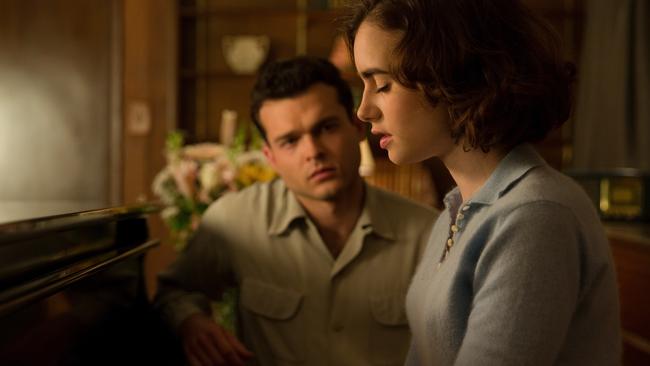
The eccentric Hughes has been the subject of films before this; Jason Robards played him in Jonathan Demme’s comedy Melvin and Howard (1980), and Martin Scorsese told his life story in The Aviator (2004), with Leonardo DiCaprio in the leading role.
Beatty, who plays Hughes, takes a different approach, setting the film in 1958 when Hughes was running his companies, including TWA and failing film studio RKO, through various frontmen and staying very much in the background himself. He’s not yet the deeply eccentric recluse he will soon become but he’s heading in that direction.
The film opens with a quote attributed to Hughes: “Never check an interesting fact,” and Beatty’s screenplay certainly plays fast and loose with the truth. For one thing, Hughes had sold RKO in 1955, and the studio ceased production in 1957, so Beatty’s film can’t be taken as a realistic portrait of the man and his times. In any event, Hughes is almost a marginal character; he doesn’t appear for the first half-hour of the film, and when he does he often remains pointedly in the shadows. For most of the film’s length the focus is on Marla Mabrey (Lily Collins), a pretty young starlet from the sticks, religious and virginal, who has arrived in Hollywood accompanied by her mother (Annette Bening) because she has been given a contract by Hughes, who she’s never met. Mother and daughter are housed in an apartment, and a car and driver have been placed at their disposal; but Hughes shows no sign of wanting to meet his new protege and in any case there are apparently 25 other young “actresses”, just like Marla, under contract, vainly awaiting screen tests, let alone an actual role in a movie. Marla’s driver, Frank Forbes (Alden Ehrenreich) has never met his boss either, and he’s conscious of the strict “no dating” rule imposed on Hughes staff.
The problem with the film is, while it’s filled with deliciously intriguing details about Hughes and his peculiar behaviour, it has difficulty settling on a coherent mood. Hughes as a character is more interesting than the problems of the young people and more might have been made of the minions who carried out his bidding, given that they’re played by a stellar collection of actors including Alec Baldwin, Candice Bergen, Matthew Broderick and Martin Sheen. At this stage of his life Hughes, a qualified pilot, insisted on flying his own planes and there’s an amusing but rather irrelevant sequence set over London involving Steve Coogan.
There are so many details to savour in this beautifully produced film that it’s all the more regrettable that it doesn’t quite coalesce into a satisfying whole. Just like the celebrated early talkie that Hughes directed, Hell’s Angels (1930), it’s a combination of the really very good and the disappointingly mundane.
***
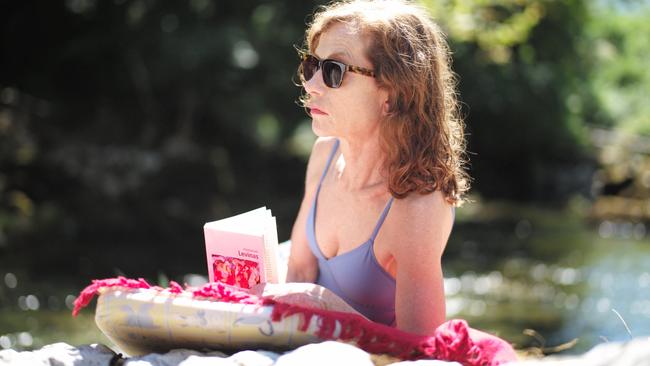
Isabelle Huppert keeps getting better and better. Hard on the heels of her great performance in Paul Verhoeven’s Elle comes her portrayal of a middle-aged academic in Mia Hansen-Love’s thoughtful, delicate Things to Come, winner of the best director prize last year in Berlin.
I can’t imagine a film such as this being made anywhere but France. It’s set in the world of intellectuals living in book-lined apartments and it deals honestly and with a great deal of emotional truth in subjects such as infidelity, illness and family ties. Huppert plays Nathalie, who teaches philosophy and lives comfortably with her husband, Heinz (Andre Marcon), while worrying about her aged mother (Edith Scob). Her children are grown up and have moved away and, though she was once a radical herself, she finds herself no longer in tune with the concerns of many of her students and even crosses a picket line during a strike at the university.
During the course of the film, Nathalie undergoes a series of crises and finds herself increasingly alone and alienated. Yet Hansen-Young, who is very good at this sort of thing, is no pessimist, and she concludes her film on a nod to “l’avenir” (“the future”, referring to the film’s original title).
***
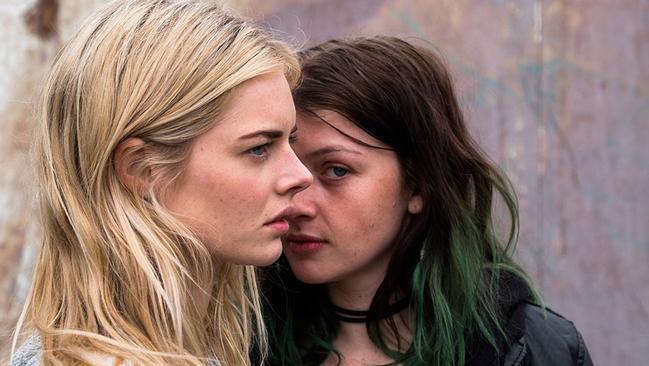
In Bad Girl, a West Australian film from writer-director Fin Edquist, Sara West plays Amy, a surly teenager who reluctantly accompanies the couple who have adopted her to their new home outside the city. Her parents, Michelle (Felicity Price) and Peter (Ben Winspear), are resigned to the fact Amy is behaving badly but they don’t know that she has arranged to run away from the place she describes to a friend on the phone as being “like North Korea”.
Her escape is frustrated — the friend who was going to collect her fails to show up — but instead she meets Chloe (Samara Weaving, niece of Hugo Weaving), a “nice” girl whose parents live on a nearby farm. The pair become friends but, more than that, there’s a sexual attraction between them. Amy wants to locate her real parents and Chloe offers to help her.
The film starts well, with an intriguing setup and solid performances all around. There’s a major twist in store, and for a while Edquist — whose background is in children’s films — keeps the viewer guessing in a most satisfying way. But towards the end the plot becomes wildly unconvincing as it all goes a bit crazy, with yet another twist and a dose of murder and mayhem.
The film is very well made, with Gavin John Head’s wide-screen photography a model of its kind and a nicely creepy music score by Warren Ellis. There’s a lot of talent on display here, but the screenplay would have benefited from a bit more work to make the increasingly incredible developments that occur in the late stages a bit less fanciful.
Rules Don’t Apply (M)
3.5 stars
Limited release
Things to Come (L’avenir) (M)
4 stars
Limited release
Bad Girl (MA15+)
3.5 stars
Limited release



